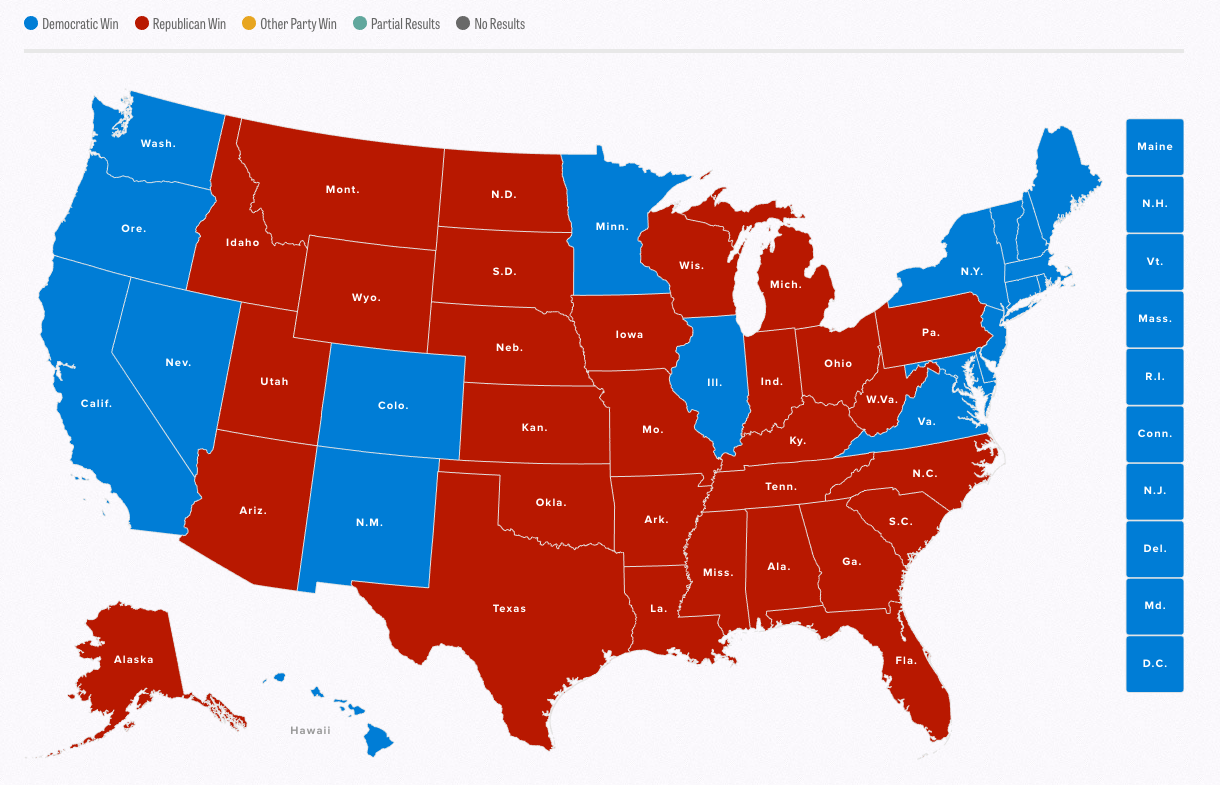By Troy MacNeill gargoyle@flagler.edu
ST. AUGUSTINE – This year’s presidential race was unlike any election in recent memory. The 2016 election was more like a Comedy Central roast rather than a political race. Hateful rhetoric and mean-spirited one-liners from each candidate only proved one thing: Our nation is still deeply divided.
While this election will affect everyone in some form, parents all over the country are being forced to make a decision: How will they discuss with their children the divisive speech and crude actions of this election?
“It’s difficult as a parent to sit your child down and try to explain to them what the future will look like,” says Samantha Gratz. “It’s impossible to know where we are heading, but it looks like a scary road.”
Gratz works at Orlando Behavioral Healthcare and is raising a 6-year-old girl and a 1-year-old son with her husband. The hardest part, she says, is not knowing what the future holds for her children. It is almost impossible to prevent children from feeling the effects of the election, she says.
“My daughter is still a little young. So I do shield her a little,” said Gratz.
One thing parents cannot stop is how this election is affecting children in classrooms around the nation. According to a recent report from the Southern Poverty Law Center, the divisive rhetoric of both presidential candidates in this year’s election is enabling bullying and frightening schoolchildren across the nation.
The report surveyed approximately 2,000 K-12 teachers and looked at the impact the presidential campaigns had on students. According to the report, the campaigns have revealed, “an alarming level of fear and anxiety among children of color and inflaming racial and ethnic tensions in the classroom.”
These spikes in bullying should come as no surprise when each presidential debate was more about which candidate could talk louder and come up with the better zinger. Here are some examples taken from the nationally televised debates.
- Hilary Clinton: “It’s awfully good that somebody with the temperament of Donald Trump is not in charge of the law in our country”
- Donald Trump: “Because you’d be in jail.”
- Trump on police reform: “”Secretary Clinton doesn’t want to use a few words: Law and order.”
- Clinton on Trump: “Donald, I know you live in your own reality, but that is not the facts.”
- Clinton on Trump supporters: “You can put half of Trump supporters into what I call the basket of deplorables,” Clinton said. “Right? Racist, sexist, homophobic, xenophobic, Islamaphobic, you name it.”
Can children truly escape from the harsh tone this campaign has brought out? One student who is part of the Scholastic News Kids Press Corps asked President-elect Trump whether the campaign behavior was OK or not.
“It’s not really OK, but it’s something you have to live with. It’s called life,” answered Trump.
However, some parents, like Santiago Cavanagh, have used this election as a platform to teach his children a lesson in forming their own opinions.
“It’s upsetting when my kids come home from school and tell me that their teachers are saying bad things will happen if one candidate is chosen over the other,” said Cavanagh. “We got my kids together and we used this election to teach them. We don’t want them to repeat what other people are saying. We want them to make up their own minds.”
While some people are saying Trump or Clinton are solely to blame, Cavanagh believes that there is no one candidate at fault.
“Between the media and the campaigns, there have been a lot of hateful words, but I don’t think the discrimination and hateful speech is exactly what it seems,” said Cavanagh. “This isn’t something new. There has always been discrimination in our country, but we can teach our kids that actions speak louder than words.”
Child development expert, Dr. Deborah Gilboa, has provided some steps to help parents who are struggling to find a way to address this election with their children. Gilboa laid out her plan on NBC’s TODAY Show the day after the election:
- Teach them about how government works: “We have a system of checks and balances so that not even the president can effect big change alone.”
- Look for your values: “Go with them to read about the love and acceptance and support that people are already showing.”
- Spread your own message of love: “Get involved in telling everyone you know why your family stands strong in its values of inclusion. Get your kids involved in that work.”
Whether parents are upset with the election results or not, this could be a chance for parents, like Gratz, to teach their children about compassion.
“I tell my daughter that the world needs more kindness, more love and more helpers,” said Gratz. “The future is what we make of it and what we put out into the world.”





Be the first to comment on "Parents cope with election aftermath"